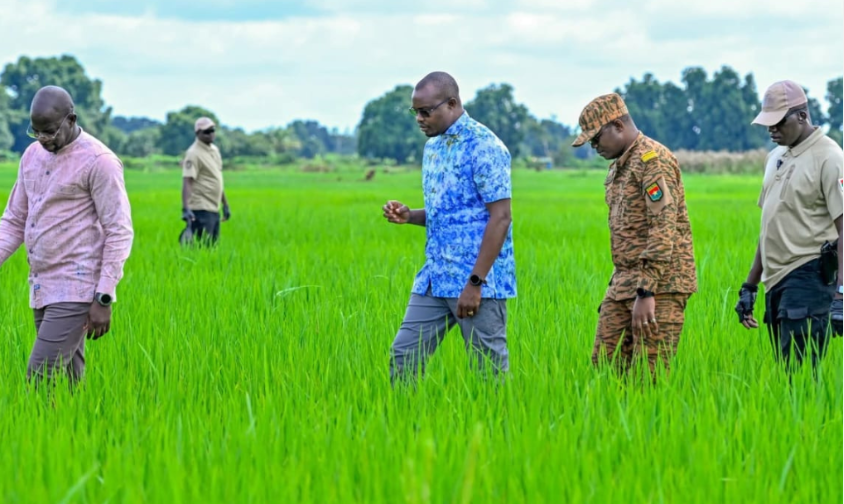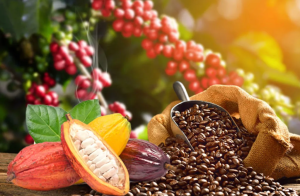Burkina Faso: Increased government investment to boost national agricultural production

The agricultural sector holds a strategic position in the economic and social development of Burkina Faso. Aware of this central role, the government has multiplied its initiatives for the 2025–2026 season to support farmers, improve yields, and strengthen national food security. This support covers inputs and equipment, technical guidance, and the rehabilitation of hydro-agricultural infrastructure.
In this context, a delegation led by the Minister of State, Minister of Agriculture, Animal and Fisheries Resources, Commander Ismaël Sombié, toured several localities in the Nazinon, Nakambé, and Gulmu regions from September 22 to 24, 2025. The purpose of this mission was to observe firsthand the efforts of producers and to collect their concerns in order to provide concrete solutions.
In Bidiga, in the Boulgou Province, the minister visited a 25-hectare rice plain managed by a local cooperative. Recently rehabilitated after several decades, the site benefits from government support through the provision of quality seeds, mineral fertilizers, and an adapted irrigation system. Projections estimate a yield of 4.5 tons per hectare, for a total of more than 110 tons of rice. Part of this harvest will be purchased directly by the National Food Security Stock Management Company (SONAGESS), ensuring secure sales and contributing to national reserves.
However, producers in Bidiga, like many others across the country, raised challenges such as the gradual silting of the dam, which reduces storage capacity and limits dry-season farming. The minister emphasized the importance of protecting riverbank buffer zones and announced that, after the rainy season, the National Land Development and Rural Equipment Company (SONATER) and the National Office of Dams and Hydro-Agricultural Facilities (ONBAH) would launch a large-scale dam dredging operation.
Beyond this visit, the government’s message is clear: agriculture remains a priority sector. Authorities plan to strengthen technical support, encourage crop diversification—including the introduction of wheat on certain sites—and promote training initiatives and experience-sharing among farmers.
While congratulating the farmers for their efforts, the minister stressed the importance of collective commitment to this vital sector. Beyond state assistance, it is the mobilization of producers themselves that will build a productive agriculture capable of ensuring food sovereignty and sustainable development in Burkina Faso.






